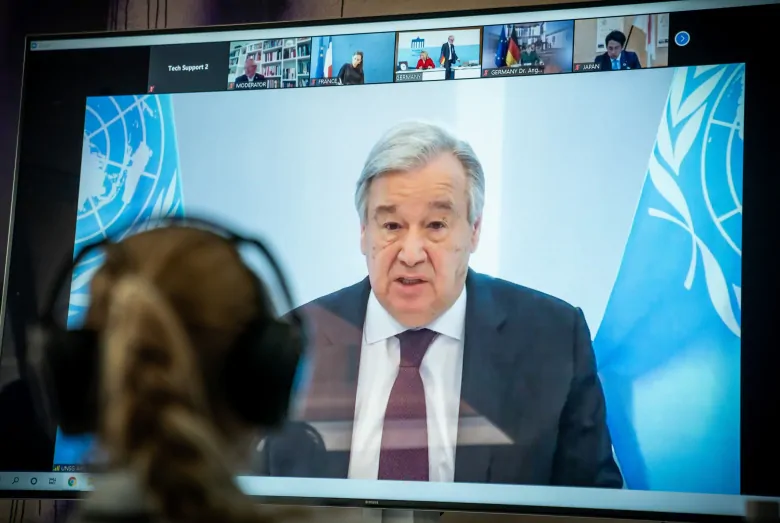UN Secretary General Antonio Guterres said Tuesday the coronavirus pandemic has led to the largest disruption of education in history, with schools closed in more than 160 countries in mid-July, affecting over one billion students.
The latest:
- UN chief says over 1 billion students have missed out on school due to pandemic.
- Australia’s Victoria state introduces tougher fines for people who break quarantine.
- New study suggests a tiny fraction of Ontario has been infected with COVID-19.
- France’s top scientific body said a second wave was “highly likely” this autumn or winter.
- WHO interviews Wuhan scientists over virus origins
UN Secretary General Antonio Guterres said Tuesday the coronavirus pandemic has led to the largest disruption of education in history, with schools closed in more than 160 countries in mid-July, affecting over one billion students.
In addition, the UN chief said at least 40 million children worldwide have missed out on education “in their critical preschool year.”
As a result, Guterres warned that the world faces “a generational catastrophe that could waste untold human potential, undermine decades of progress, and exacerbate entrenched inequalities.”
Even before the pandemic, Guterres said, the world faced “a learning crisis,” with more than 250 million children out of school, and only a quarter of secondary school youngsters in developing countries leaving school “with basic skills.”

According to a global projection covering 180 countries by the UN education agency UNESCO and partner organizations, some 23.8 million additional children and youths from pre-primary school to university level are at risk of dropping out or not having access to school next year due to the pandemic’s economic impact.
“We are at a defining moment for the world’s children and young people,” Guterres said in a video message and a 26-page policy briefing. “The decisions that governments and partners take now will have lasting impact on hundreds of millions of young people, and on the development prospects of countries for decades to come.”
According to the policy briefing, “the unparalleled education disruption” from the pandemic is far from over and as many as 100 countries have not yet announced a date for schools to reopen.
Guterres called for action in four key areas, the first being reopening schools.
“Once local transmission of COVID-19 is under control,” he said, “getting students back into schools and learning institutions as safely as possible must be a top priority.”
UNESCO’s assistant director general for education Stefania Giannini told reporters the Paris-based agency plans to hold a high-level virtual meeting in the fall, likely during the second half of October, to secure commitments from world leaders and the international community to place education at the forefront of recovery agendas from the pandemic.
WATCH: U.S. teachers protest against reopening of schools:
Teachers and staff from more than 35 school districts staged protests Monday over plans to resume in-class instruction while COVID-19 surges in many parts of the U.S. 0:51
“There may be economic trade-offs, but the longer schools remain closed the more devastating the impact, especially on the poorest and most vulnerable children,” Giannini warned.
She stressed that schools are not only for learning but provide social protection and nutrition, especially for vulnerable youngsters.
The coronavirus crisis has amplified digital, social and gender inequalities, Giannini said, with girls, refugees, and youngsters with disabilities, who are displaced or are in rural areas the most vulnerable and facing limited opportunities to continue their learning.
Before the pandemic, low- and middle-income countries faced an education funding gap of $1.5 trillion annually, Guterres said, and the ga

